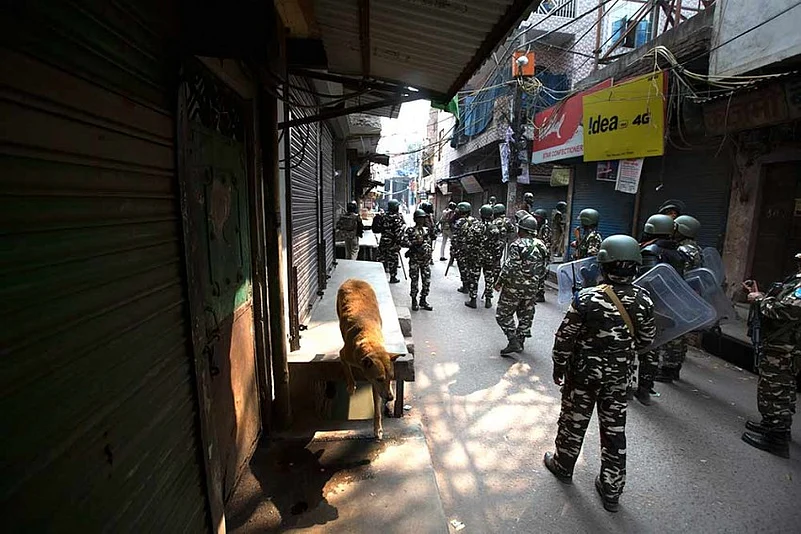A civil society activist Ovais Sultan Khan wrote in a WhatsApp group chat at 3:20 pm on February 17 and warned another member, Athar, to drop his proposal to incite violence during anti-CAA protest.
“Athar Mian, I am not educated. But I would like to tell you that some local people have evidences of what you all were saying last night about your plans of road blockade – your proposal to incite violence,” Ovais writes.
“So don’t play with fire because it will not hurt you. It will hurt us badly. Our protest will remain non-violent,” Ovais, who belongs to the area chosen for protest, adds in his message. He even went on to say that he will not let violence happen at any cost.
Delhi Police, in its chargesheet, has alleged that anti-CAA activists had created several WhatsApp groups to plan the communal violence that broke out in Northeast Delhi on February 23.
One of such groups, Delhi Protest Support Group (DPSG) was created by two activists Rahul Roy and Saba Deewan on December 28, 2019, and several well-known activists such as Yogendra Yadav, Members of Pinjra Tod organization among others were added to the group to chalk out a plan of action for protest against CAA.
Delhi police has alleged that content of messages exchanged between group’s members suggests inciting violence was a planned strategy.
Before this message, Ovais had written at 2:58 PM on the same day that local residents were not interested in blocking the road, “because they are locals and they will suffer.”
“But some outsiders who claim to facilitate the protest are planning to block the roads. Athar is saying disturbing element to some of us who are strongly opposing any road blockade in our trans-Yamuna protest sites,” Ovais writes.
He also emphasized that he wanted non-violent protests saying, “We can’t allow road block plans.”
Athar in responded to Ovais wrote, “Let it be. I sent this message to make all aware of that meeting, sustainability of protests and coordination. I am not willing to indulge in any debate nor was I willing to debate last night.”
Almost ten days after the riot, the Delhi Police lodged an FIR no 59 on April 6, in which it alleged that the violence was not accidental but a planned conspiracy by some anti-CAA protestors.
Along with various sections of the Indian Penal Code, the police has also invoked UAPA which is a stringent anti-terrorism law to prevent unlawful activities and associations against the sovereignty and integrity of India.
To date, over 20 accused persons including former Jawaharlal Nehru University (JNU) and Jamia Milia Islamia students, have been arrested and many other accused are absconding.
The chargesheet was filed against 15 accused on September 16.
Many civil society activists have strongly reacted to the contents of the chargesheet and alleged that the case filed by police is frivolous, motivated and based on imaginary details. They have also alleged that Delhi Police has not named BJP leader Kapil Mishra as an accused. Mishra had allegedly given an inflammatory speech just before the riots broke out.
The court has taken cognizance on the chargesheet and in the next course, it will be argued if charges are rightly framed against the accused or not.
















